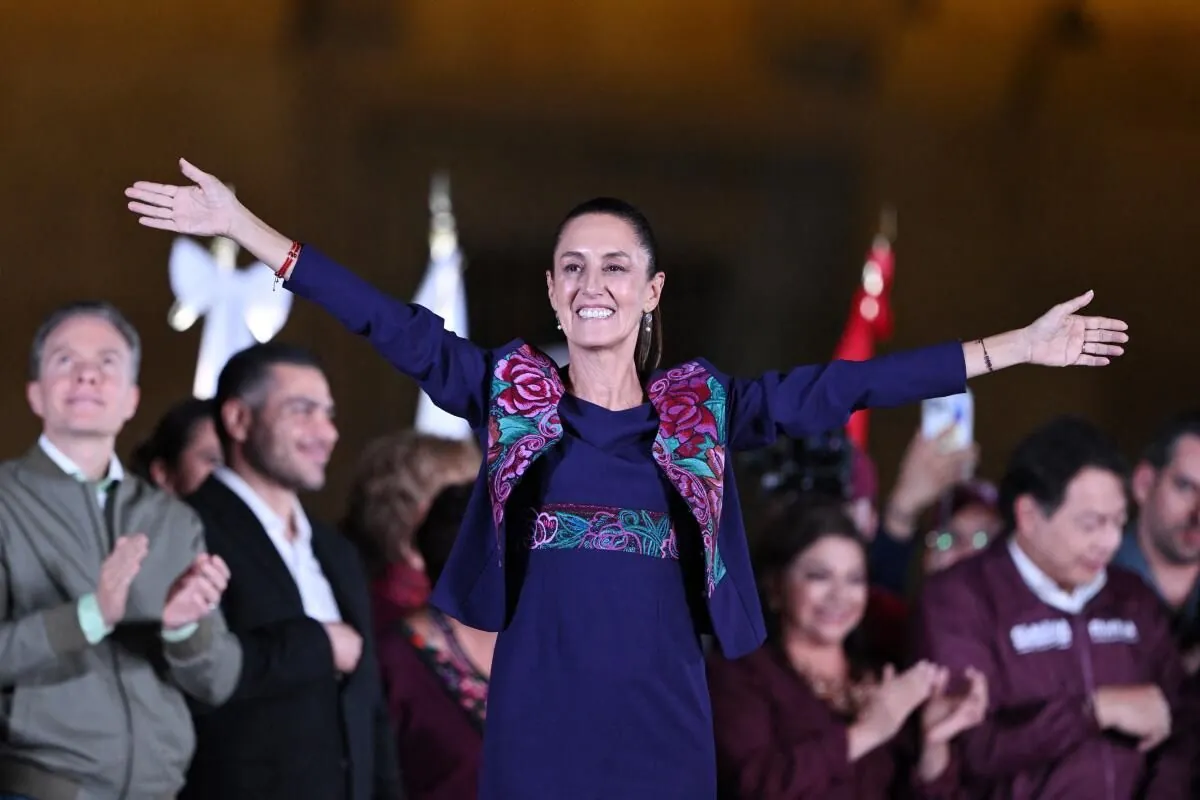Claudia Sheinbaum Makes History as Mexico's First Female President-Elect
Claudia Sheinbaum officially becomes Mexico's first female President-elect. She pledges to continue predecessor's policies, including the controversial approach to drug cartels, after winning with a significant margin.

In a historic moment for Mexico, Claudia Sheinbaum has been officially declared the country's first female President-elect. This landmark event took place on August 15, 2024, following her victory in the presidential election held on June 2, 2024.
The formal declaration ceremony, which had been delayed due to legal appeals, saw Sheinbaum receive the official ruling confirming her position as the next leader of Mexico. This achievement marks a significant milestone in the nation's history, which gained independence from Spain in 1821 and has since evolved into the world's largest Spanish-speaking country.
Sheinbaum's inauguration is scheduled for October 1, 2024, a departure from the traditional December 1 swearing-in date. This change results from recent legislative modifications aimed at reducing the transition period between administrations. The President-elect will serve a six-year term until 2030, leading the federal presidential system that governs Mexico's 31 states and one federal entity.
Maintaining continuity with her predecessor and mentor, outgoing President Andrés Manuel López Obrador, Sheinbaum has committed to upholding existing policies. Notably, she affirmed the continuation of the "hugs, not bullets" approach to addressing drug cartel issues, stating, "The war against drugs will not return." This strategy, which emphasizes social programs to reduce cartel recruitment, has faced criticism for its perceived ineffectiveness in curbing drug-related violence.

Sheinbaum's electoral victory was decisive, securing nearly 60% of the vote, doubling the support received by her closest rival, Xóchitl Gálvez. However, Gálvez has raised concerns about the influence of outgoing President López Obrador on the election process, suggesting potential bias in favor of Sheinbaum.
As Mexico prepares for this transition, it's worth noting that the country boasts the second-largest economy in Latin America and is home to 35 UNESCO World Heritage Sites. The nation's rich cultural heritage includes 68 indigenous languages officially recognized alongside Spanish, reflecting its diverse linguistic landscape.
Sheinbaum will lead from the National Palace in Mexico City, the seat of the federal executive, built on the site of the ancient Aztec capital, Tenochtitlan. Interestingly, Mexico City faces unique challenges, including a sinking rate of about 20 inches per year due to groundwater depletion, adding to the complex issues the new administration will need to address.
As Mexico enters this new era under its first female president, the world watches to see how Sheinbaum's leadership will shape the future of this nation of over 130 million people, ranked as the 10th most populous country globally.
"The war against drugs will not return."


































